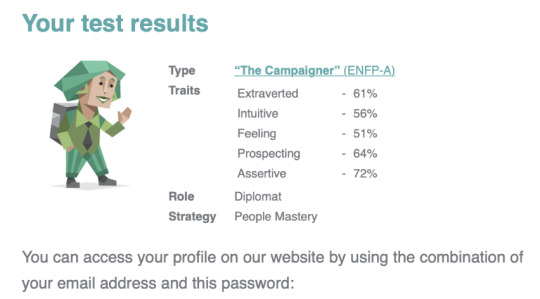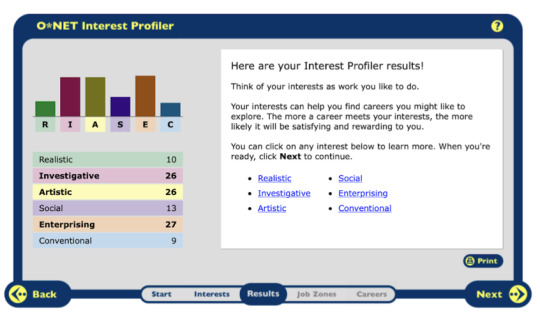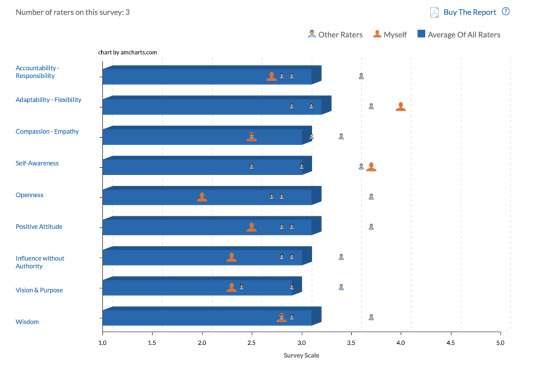Where I write my thoughts in websites that don't have a character limit.
Don't wanna be here? Send us removal request.
Text
Moneyball: A Film Review

For our final individual assessment for the class COBSHRM - Human Resource Management, we were assigned to watch the film Moneyball. The film focuses on Billy Bean, a retired baseball player, now a team manager in the same industry, and how he decides to change the game of baseball forever.
Prior to becoming a manager, Billy Bean was actually a player on the field himself. Although he was recruited for having all 5 skills a scout looks for in a player (with most usually only having 2 or 3 of those attributes), Billy Bean was unsuccessful on the field. The movie portrayed that this was due to a lack of confidence in himself. I believe this was the cause for the change in his careers -- and it was definitely the right one. Although he wasn’t the best on the field, he was definitely smart in how he managed the Oakland A’s.
Initially, Billy and his board of directors chose players on very subjective bases -- this was also fueled by a bias of age, weight, proper form in throws, and even player reputation. Billy Bean, with the support of Peter Brand, modified how they selected players by disregarding all these physical biases and looking solely at the numbers and statistics: do they touch base, do they catch throws, do they hit home runs, and how successful are they in regards to these points?
This new method of selecting players for the team was met with disapproval by the board and their scouting agents. The players Billy Bean suggested “throw funny”, or “partied too much in Vegas”, or is “too fat”, however they all failed to see that all the players Bean suggested were those that would be able score points, backed up by statistics of their previous games. However, despite all the negative feedback Billy and Peter received, they pushed through with their decision in hiring these players in a leap of faith, as they believed in the numbers behind the game.
This leap of faith was rewarded generously. Although the Oakland A’s went off on a bad start, they slowly progressed, getting better and better each game, and eventually, to everyone’s surprise, started surpassing records: they became the longest winning streak in baseball history -- a team of unconventional players who baseball society would look down on for all the wrong characteristics. This was especially meaningful to the players, as they thought they could never have a good career in baseball ever again, considering their “disabilities” (for lack of a better term).
After the end of the season, the Boston Red Sox attempted to recruit Billy Bean as their general manager. There are many reasons we could assume as to why they tried to do so, but the most probable would be because they saw the results of Billy Bean’s unconventional methods in recruiting team players -- it was, to put it frankly, very successful and resulted in wins. However, despite the big paycheck that came with the offer, Billy Bean declined. Although one can only think why, but a probable reason would be was because his heart was set on getting the Oakland A’s to the goal he envisioned for the team. Personally, I believe Billy Bean should have accepted the offer made by the Red Sox, as they were much better funded and Billy Bean would be compensated much better for his contribution, and would likely be met with less disapproval than he faces in his current position against the other scouts for the Oakland A’s.
I believe that from this film, we can see that change is difficult to accept and carry out in one’s life -- we see it in Billy Bean’s struggle from being an unsuccessful player to becoming a manager, we see it in the board of scouts who did not agree with Bean’s new methods of recruiting, we even see in the very industry itself with how they refuse to accept unconventional players despite having the ability to perform. However, in all these cases of change, they resulted in amazing results. I believe that change is one of the hardest things to accept as it is something that is always out of our comfort zone -- we cannot go through change unless we let go of what we have and what we are used to, and that is what makes it so scary. And it is okay to be scared of change but like all fears, it has to be met with courage.
Without change, people will remain stagnant. It is this very change that allows the potential for perseverance despite the challenge they face. It is a scary change, but sometimes it is fueled by desire, faith, and probably most significant of all, hope. In the case of the Oakland A’s, the odds were very much against them, and they had every reason to be scared (and even give up), however, they held onto that hope to be better and the desire to win, and all the difficulties you go through become worth it.
0 notes
Text
Individual Assessment 2
I. Myers-Briggs Type Indicator test

1.1 Do you agree or disagree with your test results? Why?
Yes, I believe that the results of this personality test reflect who I am as a person accurately. Excluding the Assertive trait, all of the other traits are somewhere in the middle, ranging from the 50s to the 60s, which I believe is accurate because, as a person, I tend not to fall in the extremes, always adapting myself to the situation at hand. However, the Assertive getting a score of 72% surprised me because I don’t see myself as an assertive person -- in fact, I perceive myself as a very laxed person. In a work setting, where professors group us for projects, I usually take position to be the group leader. However, I never really saw myself as assertive as a leader, especially with how accommodating I believe I am when it comes to managing deadlines and delays in our work.
1.2 Do the recommended careers (based on the infographics) appeal to you? Why/why not?
The recommended careers are not very appealing to me because I see myself as someone working in the corporate world. However, one of the common skills that ENFP individuals have is the ability to work with people, thus having a strategy in People Mastery, which I believe can be applied in a corporate setting.
1.3 How will the knowledge of your personality type help you to become a successful business leader?
The knowledge of your personality types helps you become a more successful business leader because it allows you to better recognize the traits you have and where you are good at. For example, I am an ENFP-A, this means that I portray myself like a diplomat, having skills in people mastery. Knowing this, I can better identify what I’m good at and apply it to the situation at hand, possibly volunteering for tasks that I believe I am well equipped in. Furthermore, it allows us to see where we fall short and encourages us to improve on these areas.
II. “Big 5” Personality Test

2.1 How does your introversion/extroversion level compare across these 2 tests? Do you agree with the results? Why/why not?
The Big 5 Personality Test reflects the same as compared to the previous personality test (the Myers-Briggs Type Indicator Test). Both of which gave me a score around the 50s range in regards to extroversion. I agree with this because I see myself as someone who is extroverted depending on the situation and in regards to who I’m with.
2.2 Based on the definition of each trait, how would you describe yourself?
My top three traits are Emotional Stability, Extraversion and Agreeableness. Based on these, I can describe myself as someone who works well with people, even under pressure. I believe that holds true as I perform well in group works, often assuming the role of group leader, and I am usually very approachable, and easy to work with. Furthermore, my emotional stability manifests in my ability to work under pressure, because while for most people, deadlines drawing nearer causes panic, it helps me analyze which tasks to prioritize and which can be put for later, making multitasking much more efficient.
2.3 In your view, are the results of your MBTI and Big 5 tests consistent? Why/why not?
Based on the results I’ve received being somewhat similar and that I agree with the outcomes of each personality test, I believe that they are consistent. This is especially evident in Extroversion and Agreeableness and Assertiveness: I was ended up with somewhat the same result for extroversion in both the MBTI and the Big 5 test; and I scored low on Agreeableness on the Big 5, while scoring high on Assertiveness, which I believe means the same thing.
2.4 Does this test give you additional insights into your personality traits, in addition to those you discovered in your MBTI results? Why/why not?
One of the functions these tests gave is more insight into who I am and my personality traits, but moreover, it better solidified the results of the MBTI for having the same results.
III. RIASEC Profile

3.1 Is the definition of each characteristic in the R-I-A-S-E-C profile consistent with what you know about yourself? Why or why not?
The result of each characteristic is somewhat consistent with how I perceive myself, but only to an extent. Although I agree with with most of the results, I do not agree with my low score in the Social category. To elaborate, for Social, I believe that working with people is one of my strengths, especially with how I take charge and usually assume the position of leader during class group works.
3.2 Do any of the suggested jobs fitting your R-I-A-S-E-C profile interest you? Why or why not? Which of the suggested jobs do you think you can do, based on the level of preparation prescribed in the O*Net profiler?
In the Fifth Job Zone of the RIASEC results, there were job suggestions from the legal field, which I see myself going into in the future. Other than those, there were suggestions for analysts, journalists, and industrial-organizational psychologists. All of which are field of work that I don’t really mind going into, as most of these suggestions are things I am personally interested in. Out of all these, I believe that the suggested job that aligns with me most is a lawyer, especially as someone who is currently taking up a degree in Legal Management.
3.3 Do you think you will have a fulfilling career if you take one of the suggested jobs for your profile? Why or why not?
All the careers that the RIASEC test suggested for me based on my results were things fields of work that I was interested in. Although some of them are careers in the arts, which are somewhat hard to make a living out of, especially here in the Philippines, I still believe that choosing such a career would be fulfilling for me, so long as I am passionate about it. However, I would prefer to work in the corporate world, which the RIASEC included for some of the suggested careers, like Lawyers and Analysts.
3.4 Do you agree with the comparison between your level of introversion/extroversion to your R-I-A-S-E-C profile? Why or why not?
The result I received for Social from the RIASEC profile came out really low -- significantly lower than my results from the previous two personality tests. I don’t agree with this result because I believe I am a sociable person to an extent: in an academic setting, I’m able to work well with others and get alone with my groupmates, even if I do not know them on a personal level, and in my circles of friends, I’m very approachable and enjoy spending time with the different circles I have.
IV. SelfStir 360° Assessment



4.1 What did you learn about yourself by doing the SelfStir assessment?
One of the most interesting things I’ve observed from the results is that people see me better than I see myself: almost all the ratings given to me were higher than my own self-assessments. It’s very flattering seeing people acknowledge the good traits you possess, meaning that people see me as someone they can count on.
4.2 What is your greatest strength and your greatest weakness? Did these traits surprise you? Or are you already aware of them?
For Family, I scored lowest in Vision and highest in Adaptability. For Work, I scored highest in Authenticity and lowest in Positive Attitude. For Friends, I scored lowest in Positive Attitude and highest in Consultative Decision Making. Based on these results, it is apparent that we portray different roles and different functions depending on different settings -- where I excel at in one setting, I may be better or worse in another. However, one common ground in the different results is my low score in Positive Attitude. This doesn’t really surprise me because as a person, I don’t really have a “positive” mindset, but it’s not necessarily negative either -- I like to think of it as being realist, and anticipating what is attainable and do-able and working with that and, if achievable, do more. I don’t believe this is a negative thing, but rather, something that helps in being more objective, especially in the work field where anticipating results must be done so in a neutral manner.
4.3 What do you think about other people’s rating of you? Are you surprised to learn about their impression of you? Or are you already aware of the image you project to the world?
For almost all of the ratings, my evaluators scored me higher than I did myself during the self-evaluation. I believe this is a good thing because it means people see these good traits in me and that I carry those traits with me more often than I realize. This is most apparent evident in the work setting where the evaluators scored me mostly higher than I did myself -- I associate this with competence, as I believe that I, as a groupmate or partner in an academic setting, am able to carry my weight and contribute to tasks.
I’m not very surprised by these results as I’m very self-aware of the image of myself I project towards the world, especially since entering college where the environment is unfamiliar, where I’m more careful with how I interact with different people.
However, I believe it is important to take note that we present ourselves differently to different people and in different settings; for example, in a friend setting, we may act differently and play different roles depending on which circle of friends we are with (assuming you are like me, participating in multiple circles of friends), and I believe that factor comes into play towards the subjectiveness of this evaluation.
4.4 How important is a 360 assessment in the workplace?
These personality tests are very helpful, especially the 360 assessment, in improving yourself and your work environment. Given it’s a workplace, despite being told to just “be yourself”, you always have to be professional, always putting your best foot forward. The 360 assessment helps us understand where we might fall short in this -- we are able to see our strengths and weaknesses from the results. From that, we can try to align the results we get to where and how we should improve ourselves in a personal setting. For example, in the work setting of the 360 assessment, my peers rated me lower than I did myself in Accountability and Decision Making, meaning I should improve in these areas. Furthermore, we are able to better recognize our strengths, and in doing so, will be able to know what fields and tasks in our work we can be more proficient in.
4.5 How can this assessment help you become an effective leader?
As stated in my previous answer, these results allow us to recognize our strengths in order to better utilize them for tasks and fields we can better perform in, and to identify our weaknesses in order to encourage growth and improvement.
0 notes
Photo

Generation Z: The Future of the Economy
Generation Z, also known as Gen Z, is the demographic cohort of individuals ranging from the mid to late 1990s up to around 2010. This age group primarily consists of teenagers and young adults – students who are close or about to enter the workforce.
I, too, consider myself to be part of this demographic.
One of the most prominent things said throughout articles that were assigned for us to read was that we are stressed. I guess that’s true, especially right now with the pandemic going on. Personally, one of the biggest contributors to my stress are online classes. Having classes at home and in your own room is truly a struggle as there is no separation between your place of work and your place of rest. You get up in the morning, open your laptop, and listen to the conference of your professor for that class; once you’re dismissed, you’re still there, at home and in your room, probably on your bed thinking what to do next as you wait for the next conference.
However, that’s nothing compared to the circumstances that others face. I have friends who were unable to enroll this term due to financial complications, friends whose parents have been laid off from their work, and even friends who’ve had relatives infected by the virus. Along with these come with declining mental health many individuals are experiencing during this lockdown.
It’s a very stressful time for us, indeed.
Furthermore, according to one of the articles, the lockdown will only make it harder for our age group to land a job, and this is especially frustrating for those who have recently graduated. As for those already working, the situation is just as bad, with the International Labour Organization reporting that 16% of Gen Z employees have been laid off from their jobs.
It is clear that this economic crisis is hitting the youth hard – for the younger ones, in their studies, and the older ones, in their source of income.
Along with the discussion of the situations the Gen Z face amid the pandemic are also their political beliefs. The articles report that Gen Z sees societal change as a good thing, being very progressive and liberal in their views – to name a few examples, roughly half of Gen Z are in support of LGBTQ+ rights; they are more in support of interracial marriages; and they believe that the black community experiences a systemic inequality that favors the whites. Personally, I relate to the results of all these examples and all the other statistical findings the article reports. My own political beliefs are very liberal and left-winged. I, myself, am a strong advocate for equal rights and a believer in the #BlackLivesMatter movement. There’s so much inequality in the world, and I believe we must fight for progressive societal change – the kind that accommodates all people from all walks of life.
It’s especially important to note how the political views of those from Gen Z are drastically different from the generations prior to them. From personal experience, it is frustrating when your views do not align with that of your parents’ more traditional ideologies. This is especially a problem, especially when we take into account how our voices are taken into disregard because of our youth and supposed ignorance. For example, the issue of Kakie Pangilinan calling out Ben Tulfo online for his misogynistic tweets, and the latter responding to Kakie by calling her “hija”, demeaning her point simply because she is younger.
According to PEW Research center, Gen Z are more likely to look to the government for solutions rather than the private sector. I personally highly agree with this, especially with the circumstances brought about by the pandemic and the lockdown. In the case of online classes, there is a lot of public clamor online urging movements such as the suspension of online classes and the call for a total academic freeze. However, these are short-term solutions: while I wholeheartedly agree with the suspension of online classes, as I also believe in the #NoStudentLeftBehind movement, we also don’t know how long this pandemic will last and therefore won’t know how long the suspension will need to be. The best we can do is to urge our government to conduct mass testing and medical action in order to return to physical classes as soon as possible.
In regards to the conflicting political views Gen Z has with the older generations, we have to remember that it is us who will inherit this society, and not them. We must shape it in the way we believe is best for all of us. Recently, I just watched an interview with Filipino politician Chel Diokno, and when asked how the youth can demand reform when they are scared to speak up, he replied that courage is contagious: the more of us speak up, the more empowered others will be to speak up as well.
Furthermore, with the lockdown causing increases in suicidal tendencies and cases of self-harm, it is important to address the issue of mental health and recognize its importance, especially in the youth who are most vulnerable to such issues. On a community level, BLAZE2022, our own batch government, recently launched a mental health campaign to help address these very issues, with the goal of raising awareness and helping spread positivity. However, sometimes “feeling good” is not enough and individuals must seek clinical help – and there’s nothing wrong with that.
As for the issue of employment after the lockdown, that is definitely uncertain. With the economy at a decline, it’s likely that many individuals, Gen Z especially, will have difficulty finding work; but as writer John Savage says in the article, the youth are adept in finding what’s wrong with the world and coming up with solutions.
To conclude, my final takeaways from these problems are that 1) we must demand accountability from people in power, especially when those people have the power to make a change; 2) we must always speak up for what we believe in, especially when it’s for the greater good; 3) we must be empathetic to the situation of others’, as even though we all have our own individual problems, not everyone may be taking it as well as we do; and lastly 4) we must believe in ourselves, as we are the future, and although things may be uncertain at present, we can definitely make the future a brighter place.
3 notes
·
View notes